“Why is loving Ukraine a guilt? Why am I guilty of being inspired by the idea of Ukrainian independence… so much so that I was ready to stand up against the Soviet Union and the whole world, had I only been called upon?”
These words belong to a man whose name is little known. The story of Anton Oliynyk’s life and death may seem unbelievable, but it is true.
Volodymyr Marchenko, a well-known Ukrainian Soviet-era journalist and dissident, wrote about him as a graphic example of someone crushed by the merciless system that claimed to be the most just in the world.
Oliynyk was born in 1926 at a farmstead near the village of Drukhiv, in the Kostopil district of the former Polish province of Volhynia, now Ukraine’s Rivne region. In his early years, he tilled the land with his parents. As a school student, he read enlightenment literature published mostly in Lviv and disseminated in Western Ukraine.
After his homeland was “Sovietized” in 1939, Oliynyk made his life choice. From 1944 to 1947, he was a member of an underground nationalist group. He was still young and his participation in the resistance movement was not marked by any special feats at this, for example he did not carry out any acts of sabotage or pick off any official of the Soviet occupation administration.
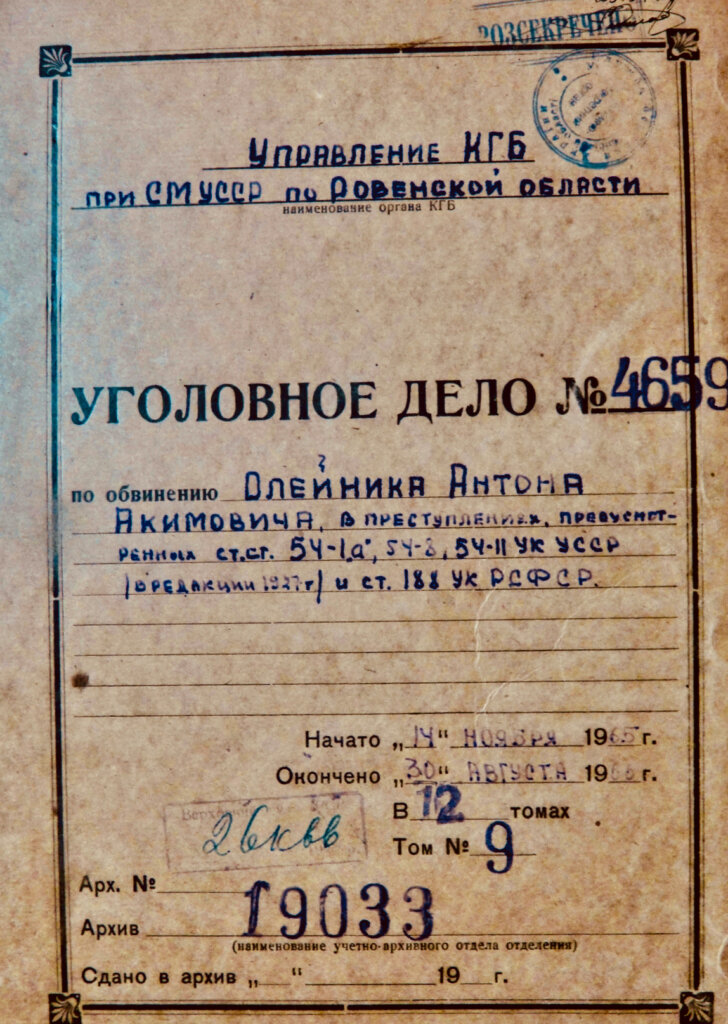
On June 30, 1947, Oliynyk was detained by a special task force of the Ministry of State Security (MGB – the predecessor of the KGB), and in September was sentenced to 25 years of “correctional labor” plus five years of political rights deprivation.
First daring escape
Less than a year after he was imprisoned, Oliynyk decided to do what few others dared – to break free. In September 1948, he escaped together with a man named Alexey Maslennikov from the Kamenniki camp of Volgolag (a correctional labor colony in the Yaroslavl region of Russia).
One Soviet-era political prisoner recalled: “An escape from a Soviet camp was an almost unfeasible and lethally dangerous venture. Still, this option was considered in a very narrow circle of likeminded prisoners.”
Oliynyk and Maslennikov were at large for six days, before being hunted down and brutally beaten. Oliynyk was subsequently transferred between several labor camps before ending up in Minlag (Mineralny correctional labor camp in the settlement of Inta, Komi Autonomous Republic, Russia).
Second escape
He maintained the belief that escape was his best option. In September 1954, he and Hryhoriy Lysiuk dug a 20-yard tunnel from the latrine. It was his second escape. He walked several hundred miles in 28 days through the impassable taiga forestland and across the Urals to reach Ukraine.
Once in Ukraine, he met with his mother and sister and tried to restore contact with members of the underground anti-Soviet movement. But he was caught again in Kostopil. He was thrown into a prison in Vladimir where he shared a cell with Yuriy Shukhevych, the son of Roman Shukhevych – legendary commander of the Ukrainian Insurgent Army (UPA).
On August 17 1955, Oliynyk sent a letter to the Soviet leader Nikita Khrushchev in which he wrote: “In the documents I am a ‘citizen of the USSR’, but in fact, I have not enjoyed any rights of a citizen even for a month. I have never been issued any official ID by Soviet or any other authorities, yet I was sentenced to 18 years of ‘deprivation of civil rights’ and 44 years of imprisonment and correctional labor. Unable to endure torture, I escaped and have been punished for it over and over again.”
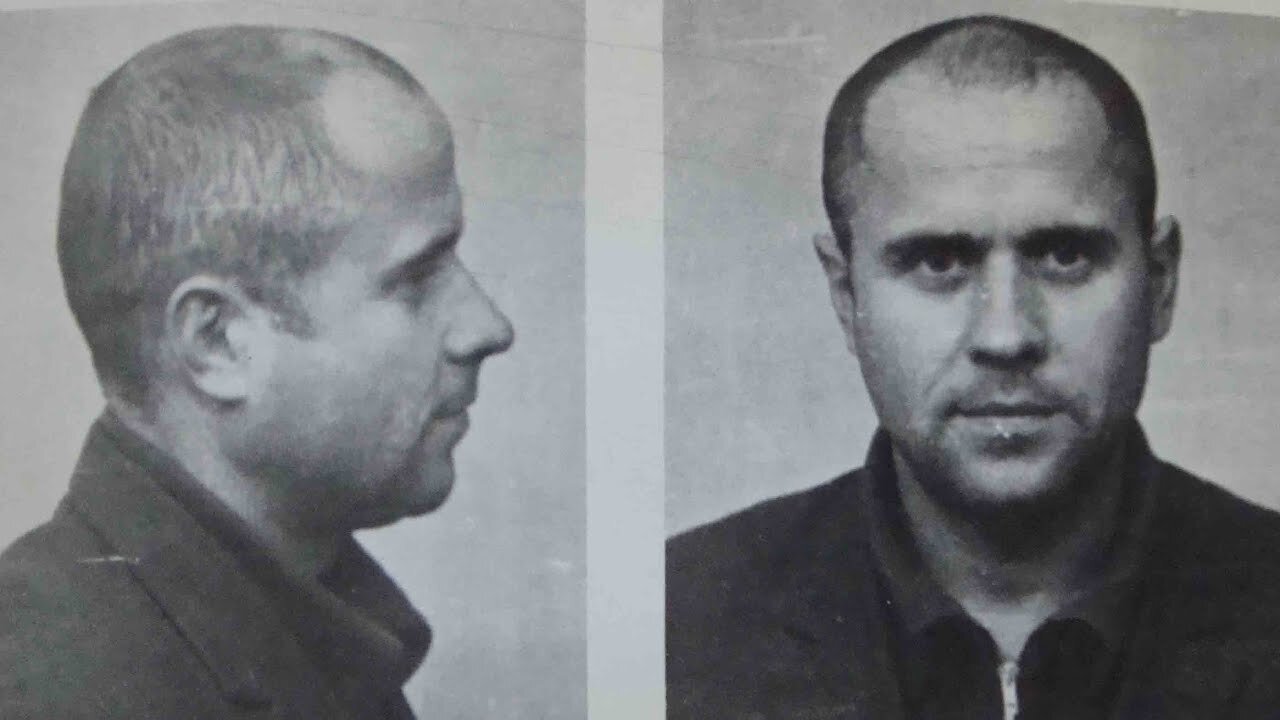
During the “Khrushchev thaw” – a period from the 1950s to the mid-1960s when repression and censorship in the Soviet Union were relaxed – many political prisoners were pardoned, amnestied, and rehabilitated. Oliynyk was not one of them. Instead, he was stigmatized as a Ukrainian nationalist.
In his letter to Khrushchev, he wrote: “Why should a human being be born only to suffer and wait instead of living?… Of course, one may say that one man’s death does not matter much in a country of 200 million… But I am a human being, just like all the rest living on the planet. I want to live and I value my life.”
Period of education
From August 1955 to January 1958, Oliynyk remained in the Vladimir prison where he had an opportunity for self-education, and he made the most of it. He attained a secondary school certificate, learned foreign languages and studied classical philosophy, literature and history. His special interest was sociology.
Valeriy Marchenko wrote that he “learned every day and in three years became a ripe political scientist and tribune.” As we can see from his prison library that he collected between 1959-1965, Oliynyk’s favorite authors were Spinosa, John Locke, Paul Holbach, Henri de Saint-Simon, Charles Montesquieu, David Hume, Friedrich Hegel, Max Born, Albert Einstein, Harold Nicolson, Thomas Paine, Wilhelm Windelband and others. Marchenko wrote that Oliynyk “achieved what we call the Absolute. His torture-resistant peasant flesh harbored the vigorous Cossack spirit and refined intellect.”
Yet Oliynyk still strove for freedom.
Third escape
In August 1965, Oliynyk and his prison-mate Roman Semeniuk escaped from Camp Post 11 of Dubravlag (Dubrava Correctional Camp Administration Department, Mordovia).
Levko Lukyanenko, a well-known political figure in independent Ukraine who had spent almost 30 years in Soviet camps, including in Mordovia, wrote in his memoirs: “In the summer of 1964, we saw military helicopters flying over the forest near the camp… Soon we learned from a nurse that two prisoners had escaped from Camp Post 11. She did not tell us their names or nationality. The news was a big joy for us and we prayed they would not be caught.”
On their way from Dubravlag to Ukraine, Oliynyk and Semeniuk walked through 15 Russian villages. In Ukraine, they visited more than 70 villages and cities. They visited the grave of Taras Shevchenko in Kaniv, the Kyiv-Pechersk Lavra and St. Sophia’s Cathedral in the capital, and the village of Pliasheva, Rivne region, where the famous battle of Berestechko was fought in 1651 in which more than 10,000 Ukrainian Cossacks and peasants were killed. They also climbed the Parashka mountain, one of the highest in the Skolivski Beskydy (Carpathian range in Lviv region).
They were caught in November 1964. It was then that Oliynyk wrote what I quoted at the top of this story. It was for exterminating him that the Supreme Council Presidium of the USSR adopted a special resolution on August 4, 1966. The resolution precluded the application to Oliynyk of Articles 6 and 41 of the USSR Criminal Code which provided for converting the death penalty to a prison term. It was a license to kill Oliynyk. Convicted by the Rivne region court, he was executed by firing squad on February 6 1967 in Kyiv.
A KGB officer said to Anton Oliynyk: “It has cost the government two million rubles to catch you. That’s it now.” And that was it.
You can also highlight the text and press Ctrl + Enter


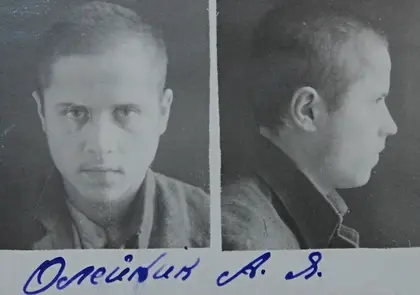
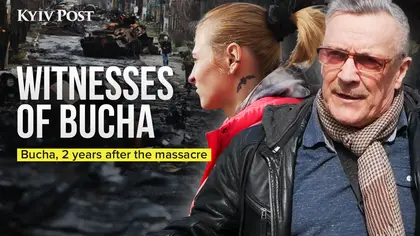
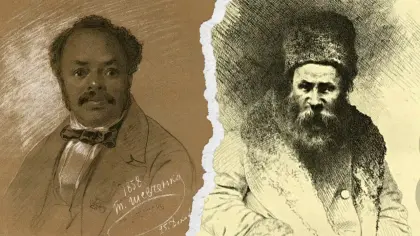
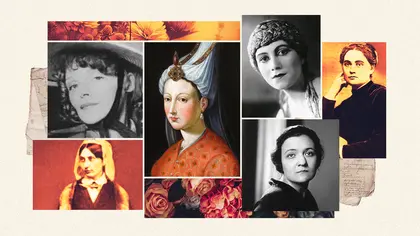
Comments (0)